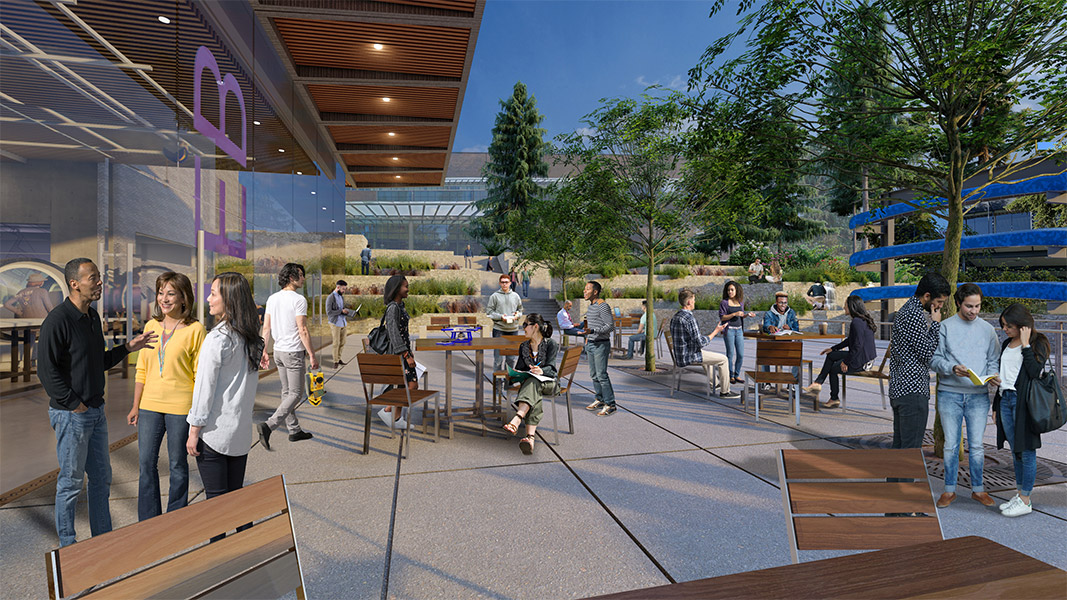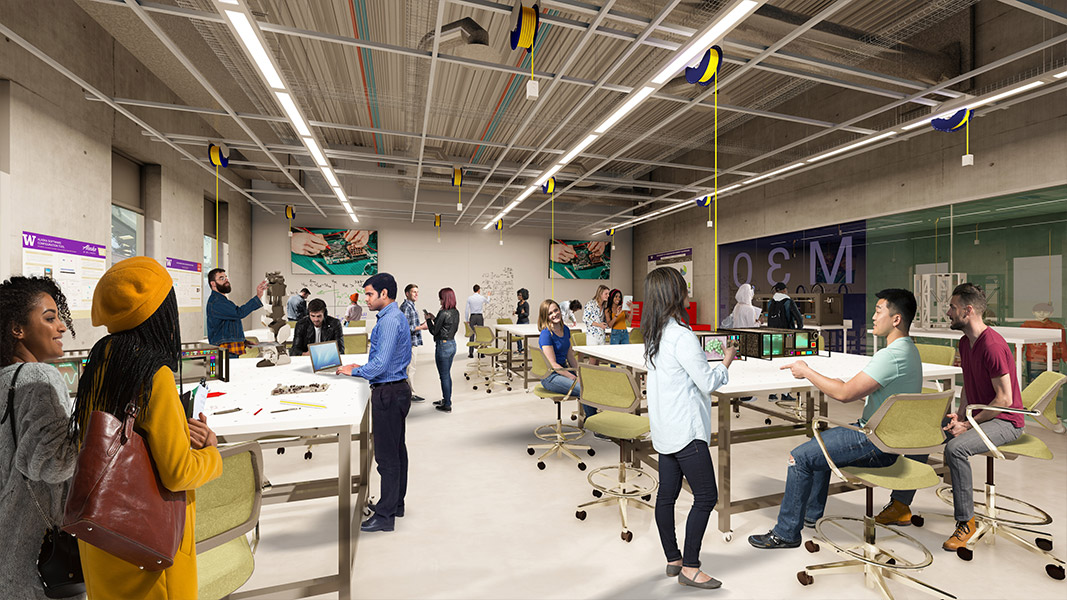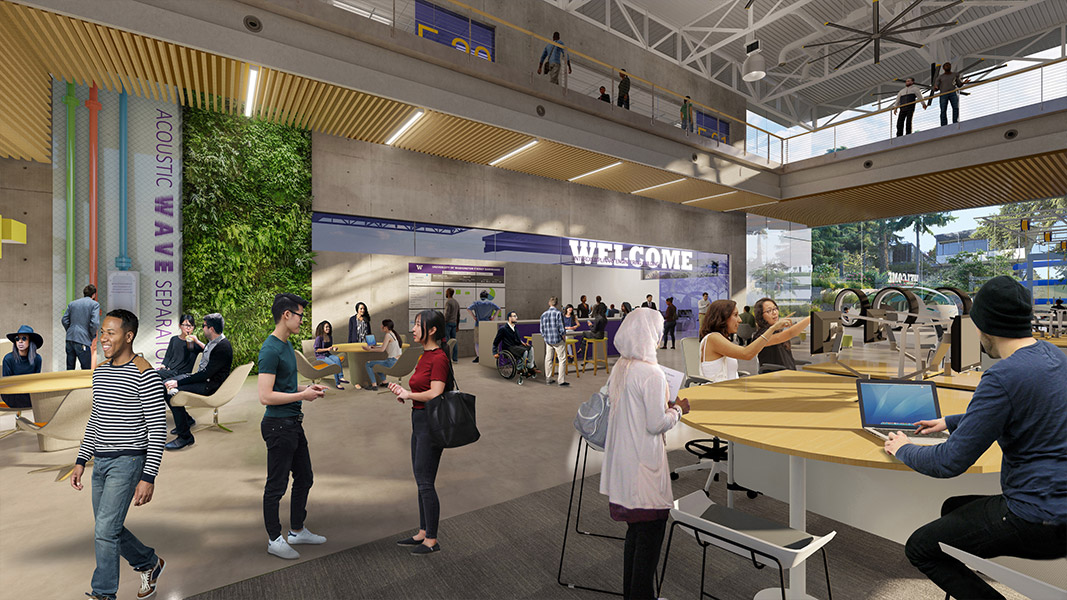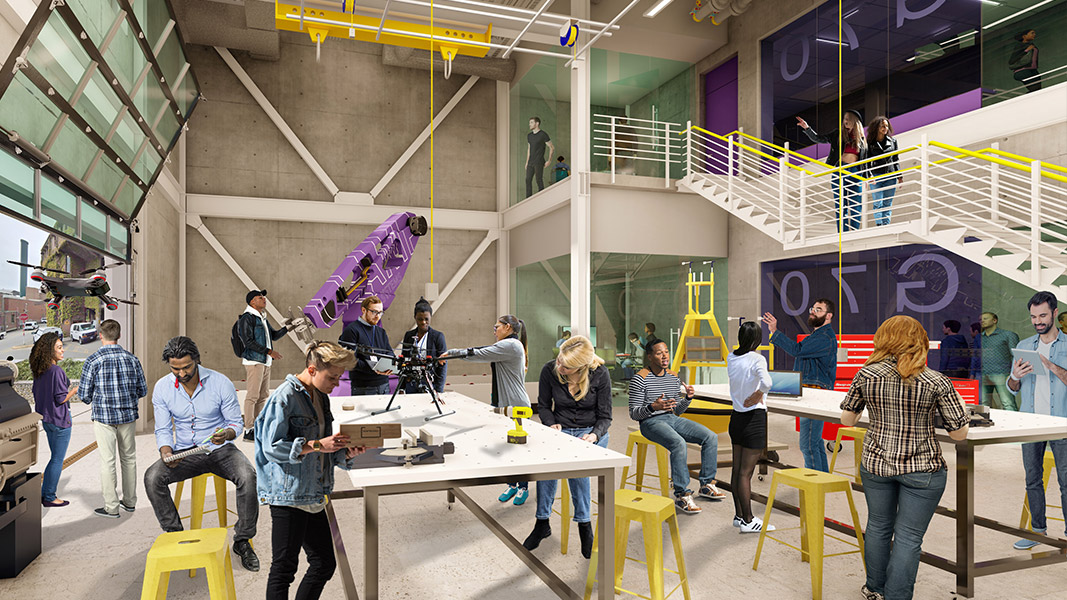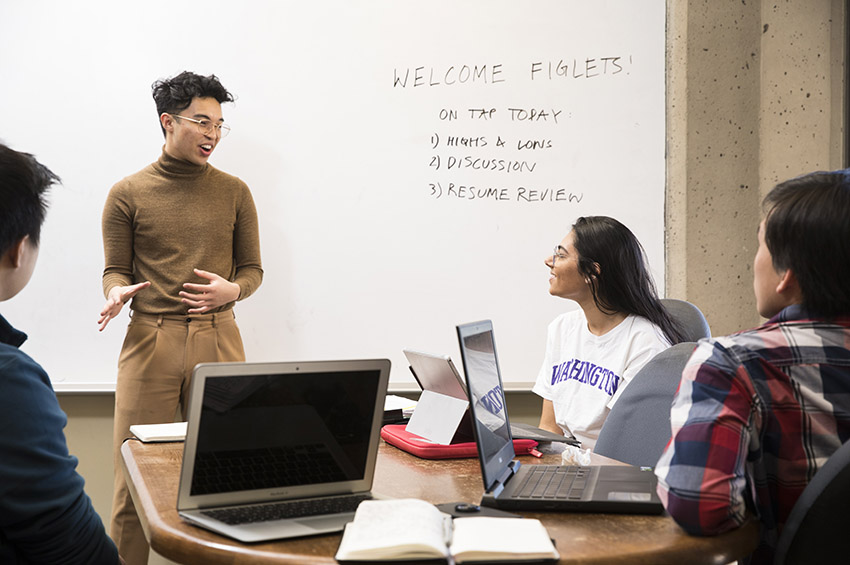UW Engineering: Providing Washington’s leading engineering education
With a mission to develop outstanding engineers and ideas that change the world, the UW College of Engineering graduates more than 50% of the state’s new engineers. Since 2009, the college has grown more than 65% in total degrees granted annually, and we are working to continue that growth.
Space limitations and the need for growth
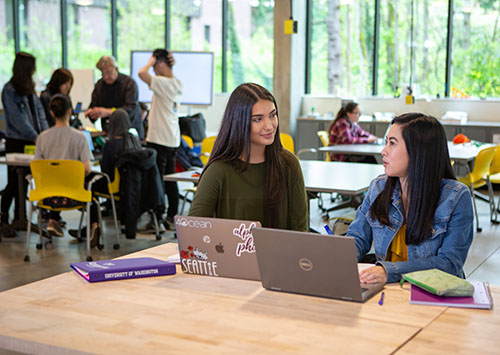
Relative to enrollment growth, our student-focused facilities footprint has not grown comparably, leading to a space shortage. The college continues to turn away large numbers of qualified applicants because we simply don’t have the space to accommodate them.
In addition, responding to the needs of our students, the college launched Direct-to-College (DTC) admission in 2018, allowing 800 new first-year students to join the college as engineering majors each year. As a result, we need additional space to house freshman and sophomore classes and programs.
As society and industry evolve, we are pursuing more project-based learning, cross-college interdisciplinary teamwork, improved diversity, increased symbiosis with industry, and more—all in support of preparing our students for the engineering careers of the future.
Thus, not only are we lacking enough space, but we lack the right kinds of space for today’s interdisciplinary, collaborative engineering education. The college’s core engineering facilities are stretched past capacity, and many of our buildings are outdated. The need to upgrade existing facilities and construct new ones is critical.
Building a solution: A home for the engineers of the future

Our new learning environments will:
Enable us to grant more UW Engineering degrees to talented Washington students
Provide an educational “home” for cross-disciplinary courses and programs
Encourage interactions that are critical to sparking new ideas
Develop students’ talents in premier teaching and learning spaces, laboratories and makerspaces
UW Engineering’s goal is to grow not only in terms of numbers, but to become more inclusive, collaborative, innovative and adaptable, with programs supported by facilities rivaling or exceeding those of our peer institutions.
To support this vision, we assessed our space needs and developed a 10-year facilities plan. The first phase of the facilities plan includes constructing an interdisciplinary engineering building that will provide an academic home for all undergraduate engineering students and additional faculty-student research and project collaboration space.
The facilities project will provide the silo-free learning environment and program space that students need to prepare for industry and entrepreneurial careers. Dedicated space for industry-sponsored capstone projects will strengthen connections between the UW and industry, opening doors to translational research and post-degree employment for students. The new building will also house programming for leadership, diversity and access.
Subsequent phases of the college’s facilities plan will include key department-based renovations and a second new building.
Together, these planned construction and upgrade projects will enable UW Engineering to provide more access for talented Washington students while building on our current educational excellence and innovation.
Building concept images
Images courtesy of McGranahan ArchitectsCreating transformative spaces
The proposed facilities project will add the following types of spaces
The time is now to invest in Washington students
The state has approved design funding. Now, to launch the first phase of the facilities plan, we seek private philanthropic investments totaling $50 million, which will lay the groundwork for another request to the state legislature to meet the estimated project cost of $100 million. We are at a pivotal moment.
We invite you to partner with us.
For more information, contact Judy Mahoney, Associate Dean for Advancement, at 206.685.8629 or jkm7@uw.edu.
